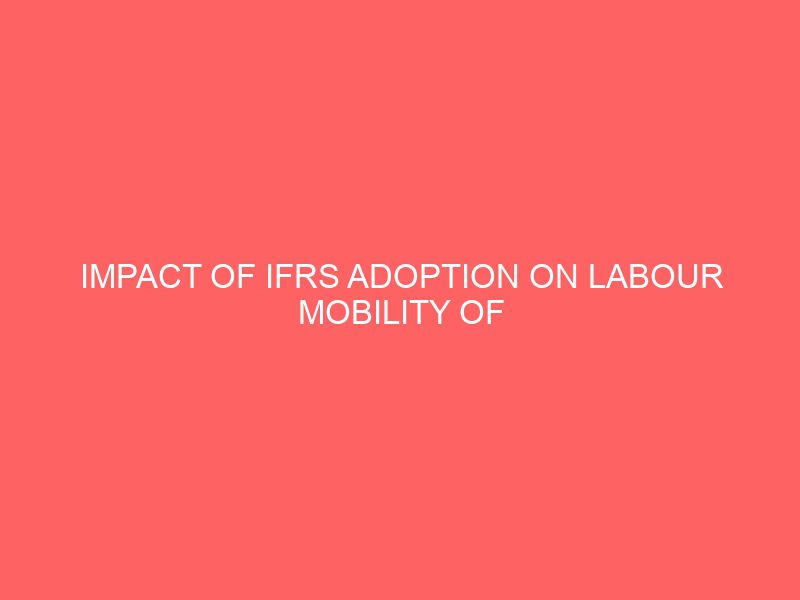Description
Abstract
This study focuses on the Impact of IFRS Adoption on Labour Mobility of Private Accountants in Nigerian Banks. The move towards adopting the International Financial Reporting Standards (IFRS) unified and higher quality accounting standards across the globe have been empirically found to improve the quality of accounting in some countries thereby increasing and was catalyzed by its usefulness to stakeholders. This study empirically examines whether the mandatory adoption of IFRS has improved the Labour Mobility of Private Accountants in Nigerian Banks. As a result of this, there have been controversies as to the consequences of this convergence from the Nigeria Generally Acceptable Accounting Principles (NGAAP) to international Financial Reporting Standards (IFRS) on firm’s financial performance and positions. The descriptive research method using Chi-square tools in assessing hypotheses and making comparison on the performance of Nigerian Banks. The descriptive research design was adopted to enable the investigator gather concrete data as they existed during the time of the study. The population of the study comprised of the management team, senior staff and junior staff. Thirty (30) respondents were studied. The research was guided by relevant research questions from which the questionnaire was developed. Data gathered were presented in tables and analyzed with simple percentages. From the results made, it was revealed that the concept of IFRS adoption has not been adequately employed in the bank in particular and most Nigerian firms in general. It also recommended that favourable and modern marked labour market and also keeps afloat








Reviews
There are no reviews yet.